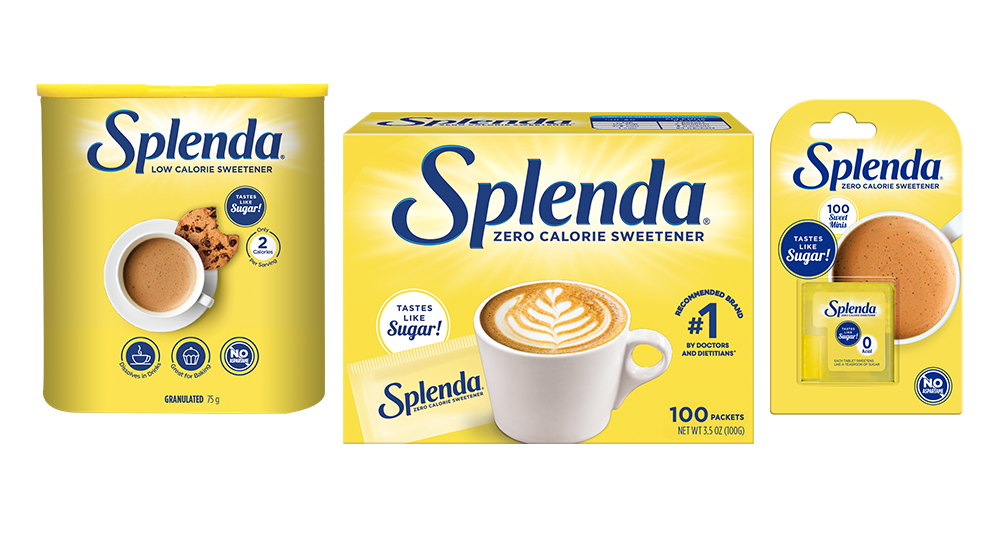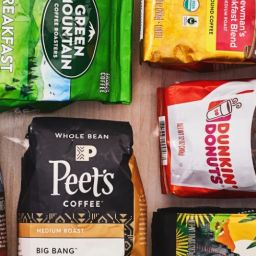
Low-calorie sweeteners for coffee emerge as champions in this realm, providing a sweet solace for those keen on maintaining their health without sacrificing the joy of a well-crafted brew. As more individuals become health-conscious, the appeal of low-calorie sweeteners transcends mere taste preferences, aligning with broader dietary goals and lifestyle choices. This shift is not just about cutting calories; it’s a deeper dive into how we can enjoy life’s little pleasures, like coffee, in a way that aligns with our health aspirations.
The Growing Trend of Health-Conscious Coffee Drinkers
The trend is clear: today’s coffee drinkers are not just focused on the origin or roast of their beans. They are increasingly mindful of what goes into their cups, making conscious choices about sweeteners. This health-conscious shift is driven by a desire for balance—enjoying coffee to its fullest while being kind to our bodies.
Low-calorie sweeteners are at the forefront of this movement, offering a way to indulge in the ritual of coffee drinking without the added worry of sugar’s health impacts. As we continue to explore and embrace these alternatives, the narrative of coffee culture is enriched, blending tradition with innovation for a healthier tomorrow.
Key Takeaways
- Health Benefits: Low-calorie sweeteners offer a significant advantage for those monitoring their sugar intake, providing a sweet taste without the associated calories or blood sugar spikes. This makes them an excellent choice for individuals with diabetes or those following weight management plans.
- Taste Preferences: With a variety of options available, from natural sweeteners like stevia and monk fruit to artificial ones like sucralose, there’s a low-calorie sweetener to match every taste preference. Some offer a taste profile close to sugar, while others add unique flavors that can enhance the coffee experience.
- Dietary Considerations: Beyond just cutting calories, choosing the right low-calorie sweetener involves considering dietary restrictions and health goals. Whether you’re keto, vegan, or have specific health concerns, there’s an option that fits seamlessly into your lifestyle, allowing you to enjoy your coffee without compromise.
Natural Sweeteners
Navigating the world of low-calorie sweeteners can be a sweet adventure, especially when you delve into the natural options available. Let’s explore some of the popular natural sweeteners that can add a guilt-free sweetness to your coffee.
Stevia
Benefits: Stevia stands out as a zero-calorie sweetener derived from the leaves of the Stevia plant. It’s a powerhouse for those watching their calorie intake or managing diabetes, as it does not spike blood sugar levels.
Taste Profile: With a sweetness that can be up to 300 times stronger than sugar, a little goes a long way. However, some might detect a slight bitterness, which varies depending on the product and personal taste preferences.
Usage Tips: Start with a pinch or a drop if you’re using liquid stevia, and adjust according to your taste. It’s perfect for those who like their coffee sweet without the calorie burden.
Agave Nectar
Glycemic Index: Agave nectar is a sweetener with a lower glycemic index compared to regular sugar, meaning it’s less likely to cause a rapid spike in blood sugar. However, it’s rich in fructose, so moderation is key.
Comparison to Sugar: While it offers a milder impact on blood sugar levels, its high fructose content suggests that agave nectar should be used judiciously, especially for those monitoring their sugar intake closely.
Honey
Health Benefits: Honey is more than just a sweetener; it’s a natural product with antioxidants, vitamins, and minerals. Its health benefits have been celebrated for ages, from soothing sore throats to acting as a natural energy booster.
Considerations for Use: When adding honey to coffee, remember that high temperatures can diminish its nutritional benefits. Adding it to coffee that’s not scalding hot can help preserve its healthful properties.
Monk Fruit
Characteristics: Monk fruit sweetener is a newcomer on the scene that’s quickly gaining popularity. Derived from a fruit native to Southeast Asia, it offers a zero-calorie sweetness without the aftertaste some associate with other sweeteners.
Why It’s Good for Coffee: Its clean, sweet taste with no calories makes it an excellent choice for coffee drinkers looking to reduce sugar intake without compromising on sweetness.
Sugar Alcohols and Artificial Sweeteners
Erythritol and Xylitol
Erythritol and Xylitol are popular sugar alcohols used as sweeteners, offering a sweet taste with fewer calories than sugar. They differ from sugar in their impact on blood sugar levels and calories. Erythritol has almost no calories and doesn’t spike blood sugar, making it a great choice for those managing diabetes or watching their weight. Xylitol, on the other hand, has a small impact on blood sugar and contains about 2.4 calories per gram (about half the calories of sugar).
Both can affect digestion, with some people experiencing bloating or digestive discomfort if consumed in large amounts. This is because sugar alcohols are not fully absorbed by the body and can ferment in the intestines.
Saccharin and Aspartame
Saccharin and aspartame are among the oldest artificial sweeteners on the market. Saccharin is known for its zero-calorie sweetness, while aspartame, found in many diet foods and beverages, offers a sweet taste without the added calories of sugar.
Health considerations have been discussed over the years, with both sweeteners deemed safe for consumption by many health organizations, though some individuals may experience sensitivity or adverse reactions. Aspartame, for instance, should be avoided by people with phenylketonuria (PKU), a rare genetic condition.
Cinnamon, Coconut Cream, and Vanilla Extract
Moving away from traditional sweeteners to more unconventional options, cinnamon, coconut cream, and vanilla extract offer unique ways to sweeten coffee without added sugar. Cinnamon adds a warm, spicy note that can enhance the natural flavors of coffee, while coconut cream lends a rich, creamy texture with a hint of tropical sweetness. Vanilla extract adds a floral, aromatic sweetness that can transform a simple cup of coffee into a more luxurious experience.
Cocoa Powder and Dark Chocolate
For those looking to add a bit of flavor and health benefits to their coffee, cocoa powder and dark chocolate are excellent choices. Both are rich in antioxidants and can add a delightful, chocolatey depth to your morning brew.
Cocoa powder is perfect for mixing directly into coffee, giving it a rich, robust flavor without added sugar. Dark chocolate can be melted into coffee or shaved on top for a decadent treat. Plus, the antioxidants in cocoa can support heart health, making your coffee indulgence a bit healthier.
FAQs
What are the health implications of using certain sweeteners?
The health implications vary widely among sweeteners. Natural options like stevia and monk fruit are generally recognized as safe and can be beneficial for those managing diabetes or looking to reduce calorie intake. However, some artificial sweeteners, although approved for general use, have been the subject of debate regarding long-term health effects. Listening to your body and consulting with a healthcare provider is key.
How do I choose the right sweetener based on dietary needs?
Choosing the right sweetener depends on your health goals, dietary restrictions, and taste preferences. For those on a keto diet or managing diabetes, sweeteners with low to no impact on blood sugar, such as erythritol or stevia, might be preferred. If you’re looking for natural options, honey and maple syrup, though containing sugars, offer additional nutrients.
Any tips for adjusting sweetness levels?
Start small and adjust gradually. Sweeteners vary in sweetness intensity, and it’s easier to add more than to counteract an overly sweet cup of coffee. With potent sweeteners like stevia, a pinch might suffice where a teaspoon would be too much.
Final Thoughts
Whether you lean towards natural sweeteners like stevia and monk fruit or the convenience of artificial sweeteners like aspartame, the key is moderation and personal preference. Remember, the best sweetener is one that fits seamlessly into your lifestyle and satisfies your taste buds.









